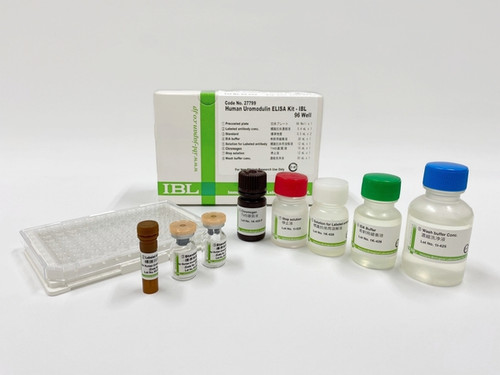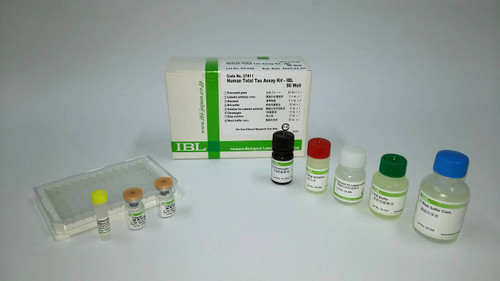Enzyme immunoassay for determination of Human BDNF concentrations in serum, plasma, cell culture supernatant and other biological samples. For research use only, not for use in diagnostic procedures.
Uniprot ID: P23560
Neurotrophins are composed of at least four family members, including NGF, BDNF, NT-3, and NT-4, and all are known to influence growth, development, differentiation, and survival of neurons . Proneurotrophins bind to p75NTR, but not to the family of Trk receptor tyrosine kinases (Trk), and following maturation, BDNF binds and activates TrkB. Trk receptors, in turn, activate three major signaling pathways: (a) Ras-MAPK signaling, which promotes neuronal differentiation and neurite outgrowth, (b) PI3K/Akt signaling, which promotes survival and growth of neurons, and (c) PLC-γ1-PKC signaling, which promotes synaptic plasticity . BDNF is a major regulator of transmission and plasticity at adult synapses.
- Assay Description:
- 90 min. incubation (37°C) + 60 min. (37°C) + 30 min. (37°C) + 20 min. (37°C) = 3 hours, 20 min. total incubation time.
- Catalog number:
- IB08200
- configuration:
- 96 Determinations, 12x8 removable strips
- controls:
- None provided.
- design:
- Sandwich enzyme-linked immunesorbent assay (ELISA) technique.
- FDA Status:
- For research use only, not for use in diagnostic procedures.
- Protocol:
- notes:
- The protocol for this product (see above) is intended to serve as an example only. Please refer to the Instructions For Use provided with the assay kit for precise details.
- Other names:
- Brain-derived neurotrophic factor
- Sample types:
- Human serum, plasma, cell culture supernatant and other biological samples
- Sample volume:
- 100 μL of properly diluted unknown / determination.
- standards:
- 8 standards, serially diluted from 1 prepared lyophilized standard.
- Standard range:
- 0 / 31.25 - 2000.0 pg/mL
- storage:
- 2 - 8 °C
- sensitivity:
- 18.75 pg/mL
- Species:
- Human







